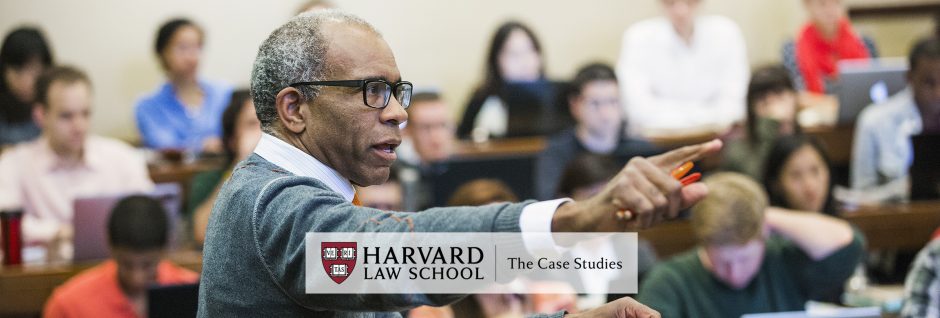
Brittany Deitch (left) and Rachel Gordon (right) have both recently joined the Harvard Law School | Case Studies team. Brittany, a recent JD graduate, was sworn into the bar in September 2017. Her role involves writing cases tailored to the JD curriculum. Brittany was inspired to get involved with pedagogy by her time in higher education, saying:
“Prior to law school, I worked for a nonprofit focused on encouraging and facilitating student access to education in American political thought and history at the university level. That organization achieved this goal by working with professors to develop their courses in a way that would attract student enrollment and foster an interest in civic engagement.”
When asked about her favorite projects so far, Brittany cited working with HLS Professor Howell Jackson and sitting in on his Regulation of Financial Institutions course, where he uses one case study per week. In Brittany’s experience, using case studies in legal education can be ideal:
“While a student in law school…most of my courses were taught using the Socratic Method and Langdellian Case Method… Although those methods help students to ‘think like lawyers,’ they do little to develop practical, professional skills needed to act like lawyers. I find that simulation exercises and skills courses supplement the classroom experience nicely. Case studies are especially great because they can be incorporated into doctrinal courses to teach students to think like lawyers and make decisions like lawyers while also teaching the substantive law.”
Rachel, who focuses on writing cases in the Executive Education sphere, is a veteran case writer that has worked at Harvard Business School Case Writing Group (then called the Global Research Group), and the Global Health Education and Learning Incubator at Harvard University, but says she first got in to writing case studies per a recommendation from a professor she had while getting her MBA at Simmons College. Rachel notes:
“Executive Education uses cases differently than the JD program; the Executive Education program’s cases focus on developing leadership and professional skills.”
Rachel also sees value in case studies in the classroom, and what their ambiguity can teach students:
“Case studies are written to encourage dialogue among participants. Often the instructor isn’t looking for the ‘right’ answer but rather a willingness for participants to reflect and build on each other’s comments Reactions to cases are not intended to be uniform; two individuals may have very different perspectives on how to approach a situation. Ad hoc debates during the class discussion can help broaden our understanding of the issues laid out in the case study. This is a time for participants to take an intellectual risk or push an idea further.”
Rachel has thoroughly enjoyed sitting in on the Harvard Law School Executive Education programming and “having a better understanding of the challenges that lawyers face today in the changing legal environment” saying:
“The 2008 economic crisis was a real watershed moment for the legal industry. It is still grappling with how to respond to new demands for efficiency and transparency while also grappling with the changes caused by technology and globalization. It is exciting to produce materials for today’s lawyers that invite them to confront these issues deliberately and creatively.”
